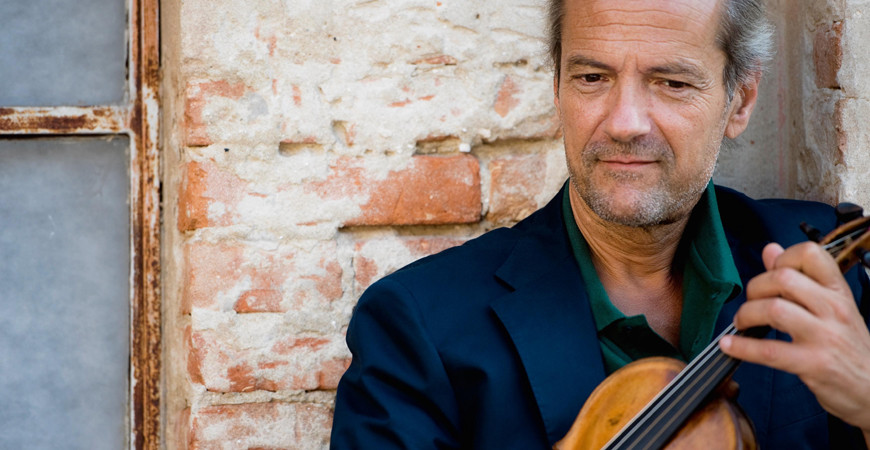
27 October 2018, 19.30-21.30
Grand Hall
PURE BAROQUE
Giuliano Carmignola & Concerto Köln  Presented by Liszt Academy
Presented by Liszt Academy
E. F. Dall’Abaco: Concerti à quattro da chiesa, Op. 2 – Concerto No. 1 in D minor
Avison: Concerti Grossi after Domenico Scarlatti, Op. 6 – Concerto No. 6 in D major
J. S. Bach: Concerto for Two Violins in D minor, BWV 1043
intermission
B. Marcello: Sinfonia in D major from the Oratorio Joaz
J. S. Bach: Violin Concerto in A minor, BWV 1041
J. S. Bach: Violin Concerto in E major, BWV 1042
Giuliano Carmignola (violin)
Mayumi Hirasaki (artistic director, violin)
Concerto Köln
Italian culture has fertilized German culture on numerous occasions throughout history. This is particularly true for music: masterpieces by German geniuses of the late Baroque, in particular those by Johann Sebastian Bach, could not have come about without the influence of contemporary Italian music. Indeed, Bach’s first biographer, Johann Nikolaus Forkel, made this very point in the early 19th century. The Thuringia composer’s concertos for one and two violins, which have survived in their original forms, lie at the heart of this concert given by Giuliano Carmignola, who hails from the Veneto region, and the Rhine-based Concerto Köln. These compositions transplant the instrumental concerto model developed by Antonio Vivaldi to a German environment. And while the compositions might be viewed as typical representatives of the ‘grandiose’ and ‘venerable’ German style, Carmignola’s Bach interpretations are famed for being impudently Italian, light and jolly.
Presented by
Liszt Academy Concert Centre
Tickets:
HUF 3 700, 5 100, 6 500, 7 800, 8 600


